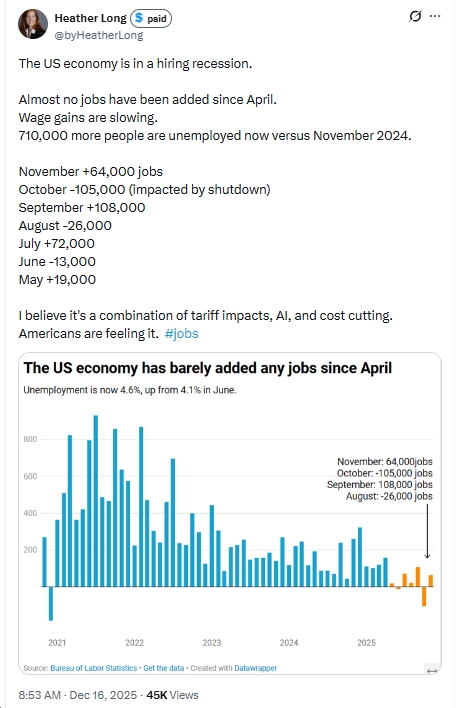From the Commonwealth Institute for Fiscal Analysis:
The purpose of economic activity is to improve people’s lives, making us healthier, happier, and more fulfilled. And when people and families are doing well, have money to spend, and are able to spend it, the economy does better, too — especially our main street and creative businesses that provide a living for many of our neighbors and friends.
That’s why public policy that sustains and boosts incomes for regular folks is so critical, especially during times of economic trouble. Although the current economic downturn has been created through deliberately shuttering businesses and activity to protect public health, there will come a time to lift the restrictions. But economic activity — and its positive impact on providing goods and experiences that improve our lives — won’t automatically bounce back. We’ll need to make sure that public policy choices put money in the pockets of people and communities who will go out and spend it at our main street businesses. And when we do so, we have the opportunity to use public policy this time around to make sure that families and communities of color who have too often been locked out of opportunity by past public policy choices are able to not only recover, but to flourish.

Too often during past recessions, communities of color who were already facing greater barriers to prosperity were hurt the worst — there’s a lot of truth to the saying that “when white folks get a cold, Black folks get pneumonia.” Black and Latinx families were hit by both higher unemployment rates and the evaporation of housing wealth due to discriminatory subprime lending and the bursting of the housing bubble. As a result, between 2005 and the depth of the Great Recession in 2009, the typical white family saw their wealth drop 16%, while the typical Black family saw their wealth drop 53% and the typical Latinx family saw their wealth drop by 66%. And even as typical net worth for white families held steady between 2010 and 2013, net worth for Black, Latinx, and other non-white families continued to fall. By 2016, the typical Black family had just 10 cents of wealth for every dollar held by the typical white family, lower than at the start of the 21st century.
By putting money in the pockets of low-income working families, especially families of color who have too often been left out of emergency financial assistance, policymakers can choose to shield families and communities with the least financial security from a repeat of the damage of prior recessions, while also doing the most to reboot the economy and get it moving again. Low-income families generally need to spend money they receive on necessities like groceries, gas, and car repairs, while high-income families may simply stash it away in the bank. As a result, policies that put money directly in the hands of low-income families have some of the most bang for the buck in helping the economy as a whole.
The federal improvements to unemployment insurance and immediate cash assistance for most families are good first steps, yet they leave out many immigrant families and are likely insufficient to keep families afloat or reboot the economy when current restrictions are lifted. Policymakers at all levels should do more to help families, especially those who have been left behind by other interventions — after all, when people are doing better the economy does bette
Most immediately, Virginia can provide at least partial income replacement for families who have been left out of the federal aid. This could be structured as a state-run unemployment insurance system for those ineligible for the federal unemployment insurance programs. Another option would be providing state tax credits for individuals and families who are not eligible for the federal tax credits. This will help people stay home who are not essential workers without worrying about whether they will be able to keep their families fed and sheltered.
Looking around the corner, the focus will need to turn to stimulating aggregate consumer demand, rather than the earlier focus on helping families who are most struggling. The planned increase in Virginia’s minimum wage in January should help by providing an injection of cash for families at a time we are likely to need the boost to consumer demand. It should also help counter the negative impacts of recessions on communities of color by particularly helping Black and Latinx working Virginians, including many who are on the frontlines of keeping Virginians healthy and fed in the current crisis. Removing the exclusion of farmworkers from Virginia’s minimum wage protections would further recognize the important contribution of essential workers who too often are taken for granted and underpaid.
And maintaining or even increasing public spending on core services and infrastructure will be critical to make sure that public employees do not begin losing their jobs just as other workers begin getting back to work, hurting the recovery as happened to Virginia at the end of the Great Recession due to federal spending cuts. While across-the-board tax cuts provide only modest help in stimulating the economy in the short or longer term, and tax cuts for wealthy investors and business owners usually do even less, spending on infrastructure is almost as effective as targeted help for struggling families. And maintaining state support for core services such as K12 education is important for making sure that children and families in communities that don’t have the resources to fill in the gaps do not fall further behind.
The current economic contraction is a direct result of policy choices to protect public health. As policymakers seek to keep families afloat during the immediate crisis and rebuild the economy in the aftermath, they can make policy choices that reduce rather than exacerbate current inequities and barriers facing communities of color. It’s the right thing to do for individual families, it’s the right thing to do for Virginia communities, and it’s the right thing to do for Virginia’s economy as a whole.
— Laura Goren, Research Director



![Thursday News: “Europe draws red line on Greenland after a year of trying to pacify Trump”; “ICE Agent Kills Woman, DHS Tells Obvious, Insane Lies About It”; “Trump’s DOJ sued Virginia. Our attorney general surrendered”; “Political domino effect hits Alexandria as Sen. Ebbin [to resign] to join Spanberger administration”](https://bluevirginia.us/wp-content/uploads/2026/01/montage010826.jpg)













